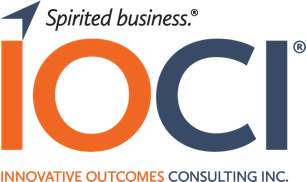
People often ask me if they should work with a coach to help them kick-start their professional success or to help move them in a new direction. For me, there’s not a quick and easy answer to this question, despite the many benefits coaching offers. This decision is best made in a thoughtful, purposeful way.
Coaching is not for everyone. Sure, we’d all like to think we’re coachable, but in reality, that’s not always the case.
In his longtime best seller “Coaching for Performance”, John Whitmore defines coaching as “unlocking a person’s potential to maximize their own performance. It is helping them to learn rather than teaching them.”
As Whitmore hints, coaching is grounded in the belief that the client already has the ability to achieve their potential. The coach’s role is to help the client pinpoint desired development areas and surface strategies to enhance his or her effectiveness.
At IOCI, we’ve found that coaching works best when conducted over a period of time and allows for incremental learning, self-discovery and experimentation. This allows the client to collaborate with the coach on new, more effective approaches to engaging and delivering results in a variety of contexts.
Coaching should be based on confidentiality and trust to enable an open and honest examination of what might be limiting the client’s ability to reach their goals. Coaching usually begins with a selection of assessments to help the client self-reflect and obtain feedback from others on things like their interpersonal style, a limiting mindset, or perhaps where they are most and least effective.
With this information, the coach and client co-create a plan with clearly defined goals that guide the coaching engagement. If an organization has hired the coach to advance the development of a high potential employee, the plan generally includes a goal or two defined by the employee’s supervisor.
But before setting on a path to selecting and working with a coach, it’s worth the effort to find out if you’re really ready.
Ask yourself these questions to determine if coaching is right for you:
- Am I open to feedback, ideas other than my own, and genuinely committed to personal and professional development?
- Do I view learning as a high priority? Am I willing to explore what might be holding me back from achieving my full potential?
- Am I open to taking risks and making changes that may require adopting new behaviors that result in greater personal, professional and organizational impact?
- Am I willing to test my beliefs and let go of those holding me back in favor of others that serve me?
- Am I willing to reflect on what’s working for me, observe myself in action, and pinpoint opportunities for development that facilitate greater personal and professional capability?
- Am I willing to engage in introspection, learn and take action to practice new skills that can help me achieve better results?
- Am I willing to do the hard, incremental work over time to create new practices, build new skills, and set me on a path of persistent learning?
How uncomfortable – or excited – did these eight questions make you feel? How many were you able to answer with a resounding “yes?”
If you responded in the affirmative to at least five of these questions, you have a high “coachability quotient” and should consider connecting with a coach who’s a good match for your professional and personal development.
Contact IOCI and we can guide you through the coach selection process.
Marialane Schultz is the founder of IOCI. She helps individuals and organizations perform at their best, do meaningful work and be impactful through customized coaching and consulting engagements.

